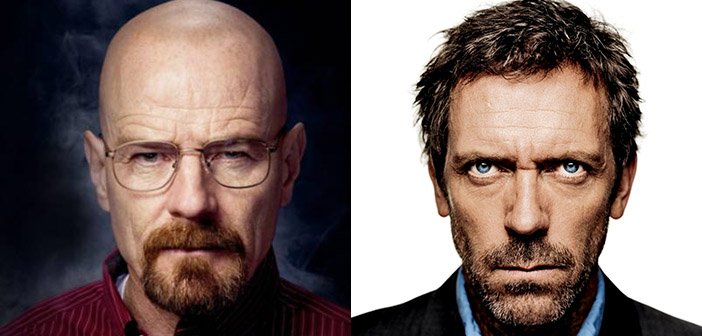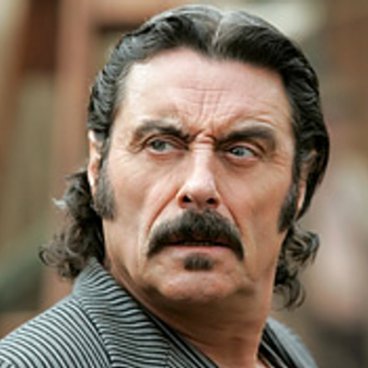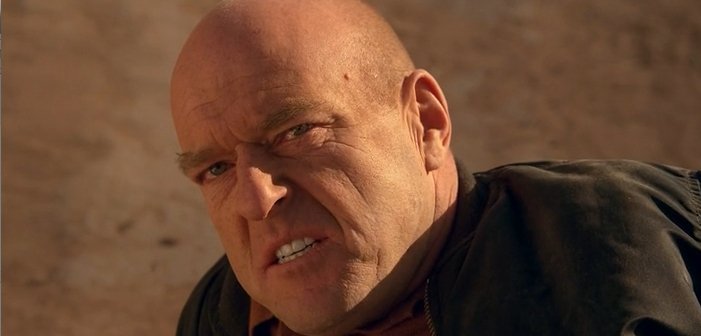The Golden Age of Television | Part 2 | No More Heroes
We have entered a Golden Age of Television with such classic shows as Breaking Bad, The Wire and The Sopranos dominating our TV screens. This series looks at the changes in the most powerful medium on the planet. In Part 1 Dave Curran studied how the viewer has changed opinions on trust and the establishment, in the second part of our study he looks at the idea of the antihero.
The golden age of TV gets much of its sheen from the brilliance of its new generation of heroes and heroines. There’s only one problem with these heroes, they’re so tarnished by their lack of traditional heroism that they’re not, in fact, heroes at all. Welcome to the age of the antihero. While Tony Soprano was busy pining for the strong, silent, Gary Cooper type hero, modern viewers wanted to witness conflict within the protagonist as well as the show.

Modern TV’s best characters are a who’s who of antiheroes: Sherlock is, by his own admission, a high functioning socio-path, 24’s Jack Bauer will take your eye out with a spoon if it protects his beloved American soil, Nancy Botwin will sell as many Weeds as it takes to provide for her family, The Shield’s Detective Vic Mackie will use unpleasant means to reach his desired end, and finally, Breaking Bad’s Walter White’s moral compass veers so badly off course it may have been the source of a gravitational wave.
So what is an antihero? Are antiheroes good people who do bad things or are they bad people who do good things? The answers are yes and yes. Two things are certain: first, the antihero should be a main character and second, they should be profoundly flawed. These flaws can fall on a spectrum anywhere between being brilliant but ornery like Dr Gregory House to being the killer of killers like Dr Dexter Morgan.
Antiheroes lack traditionally heroic traits such as idealism and morality while simultaneously possessing what Laura Crysel calls the Dark Triad of personality: narcissism, psychopathy, and Machiavellianism. In her paper on the role of the antihero in popular culture Crysel says:
“…the media is awash with characters that embody the Dark Triad. As entertaining as these characters are, they provide us with a window into the dark side of human nature.”

It may seem like the only thing modern antiheroes do to earn the hero part of their label is get written as a primary character. This is partly true but risks ignoring the times our beloved antis do the right thing, albeit often for the wrong reasons. All great antiheroes defy convention. Al Swearengen starts his stint in Deadwood as an archetypal villain but quickly becomes protector, father figure, politician, and by the end of season 1 we’re cheer-leading his murderous, Machiavellian rule. Why? Because TV’s golden age knows we’re as cynical as many of our favourite characters and sometimes, in TV as in politics, it’s best to back the lesser of two evils.
Many people believe the idea of the antihero to be a new one. It’s not. In fact the idea of the antihero pre-dates period Deadwood.
The concept of the antihero is at least 2,800 years old with many people believing Homer’s Thersites, an unlikely source of ‘truth to power’, as the first recorded example. The phrase was first used in the 18th century and became popular as a literary term in the first half of the 20th century to describe characters such as the brilliant Meursault in Albert Camus’s The Outsider.
The modern antihero emerged from the haze of the spaghetti Westerns and was portrayed as a morally ambiguous hero type, rejecting previous Western tropes of the black-hearted bad guy riding into town on his black horse wearing a black hat. Some critics think that the ambiguity portrayed in 1960s Westerns reflected the uncertainty of the age.
If the world was uncertain in the 1960s then 21st century events such as 9/11, the rise of ISIS, the worldwide recession, and our loss of faith in trusted institutions like politics and religion make the world equally incomprehensible now. This difficult to understand world has given birth to difficult to understand characters.

The hero is dead, long live the antihero! The antihero norm is so strong that we could easily ditch the anti and no one would notice. The nearest thing the golden age has given us to a traditional hero is Breaking Bad’s hapless Hank Schrader. Hank is far from perfect but he’s not motivated by any of the dark triad. Can you think of any other primary characters from one of the Golden Age shows as heroic as Hank?, I can’t.
Psychiatrist Eric Bender believed that we’re attracted to the anti hero
“,,,because their moral complexity more closely mirrors our own. They’re flawed. They’re still developing, learning, growing. And sometimes in the end, they trend toward heroism. We root for their redemption and wring our hands when they pay for their mistakes. They surprise us. They disappoint us. And they’re anything but predictable.”
If Bender is right, the uncertainty of the modern world isn’t the only thing that attracts us to the antiheroes, we’re also attracted because of the uncertainty in ourselves. Life imitating art imitating life. According to Donna Bowman:
“We understand how conditions today don’t allow us to remain clean, and that it’s just a matter of how dirty we’re willing to get in pursuit of what we’ve always been told we should want.”
The antihero has had a lengthy run by TV standards. Some people think that the end of Mad Men last year signalled the end of the antihero era but if TV watching has taught us anything it’s that the production houses will flog this horse long after it’s dead. The likelihood is that antihero TV will become as derivative and contrived as the cop and hospital dramas it initially freed us from. We see this trend already as we get variations on the antihero theme, variations like the superhero-antihero shows Daredevil and Jessica Jones. Both of these shows have excellent moments but even at their best feel like pale facsimiles of the giants like Tony, Don, and Walter, on whose shoulders they stand.
Check out part 1 in this series: The Golden Age Of Television | Part 1 | Trust No One
Featured Image Credit

